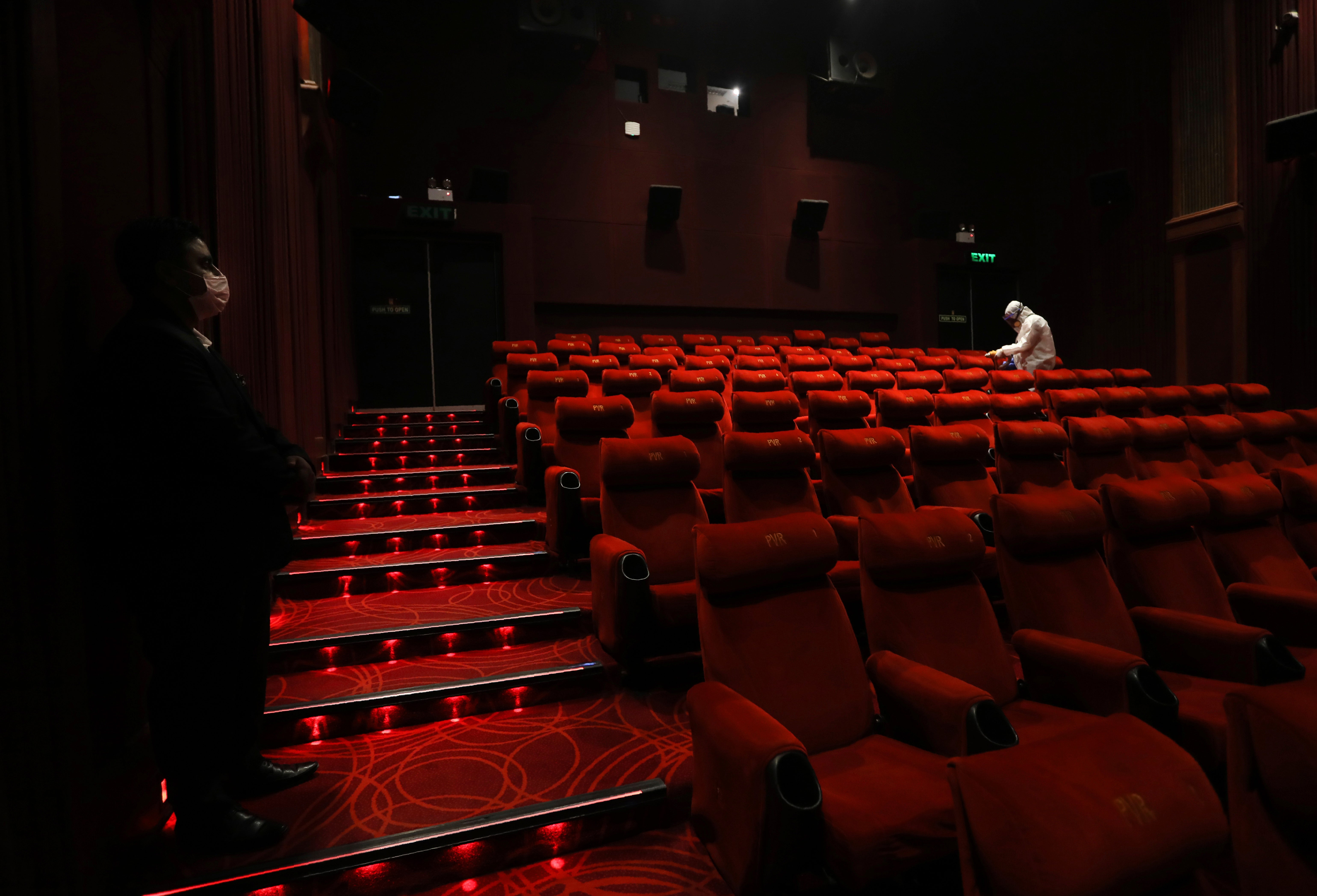Indian cinemas reboot after months of blackout from virus
After seven months of total blackout, cinemas have reopened in several parts of India with few older titles on the marquee and shows limited to half the capacity

After seven months of total blackout, cinemas reopened Thursday in several parts of India with few older titles on the marquee and shows limited to half the capacity.
The reopening of movie theaters comes at a time when India’s confirmed coronavirus tally surpassed 7.3 million. The country is registering the highest number of daily cases globally, and is expected to become the pandemic’s worst-hit country in the coming weeks, surpassing the U.S.
Nearly 10,000 theaters closed in mid-March following coronavirus restrictions. Now, they will become one of the last few public places to reopen outside high-risk areas. But they still pose some of the biggest infection risks: the virus can spread easily in closed spaces.
To minimize the danger, seats are separated. Show timings will be staggered and digital payment encouraged. Masks and temperature checks are mandatory.
“We have put everything into place, maybe more than what has been prescribed. The entire cinema touch points have been provided with anti-microbial films,” said Gagan Kapur, regional head of the PVR Cinemas in New Delhi
Some Indian states have been cautious.
Authorities in Mumbai the home of Bollywood, put off reopening cinemas for the time being. The southern Maharashtra, of which Mumbai is the capital, is the worst-hit state with nearly 37% of the country’s COVID-19 fatalities.
The reopening of cinemas elsewhere, however, comes as trends suggest a decline in new infections.
India saw a surge in July and added more than 2 million in August and another 3 million in September. But it is seeing a slower pace of coronavirus spread since mid-September, when the daily infections touched a record of 97,894. It is averaging a little more than 70,000 cases daily so far this month.
But some experts say that India's tally may not be reliable because of poor reporting and inadequate health infrastructure. India is also relying heavily on antigen tests, which are faster but less accurate than traditional RT-PCR tests.
Health officials have warned about the potential for the virus to spread during the religious festival season beginning later this month.
“The next 2 1/2 months are going to be very crucial for us in our fight against corona because of the winter season and the festival season," Health Minister Harsh Vardhan said Wednesday. "It becomes responsibility of every citizen to not let our guard down and follow COVID-19 appropriate behavior to curb spread of the infection.”
___
Associated Press video journalist Shonal Ganguly contributed to this report.
Bookmark popover
Removed from bookmarks